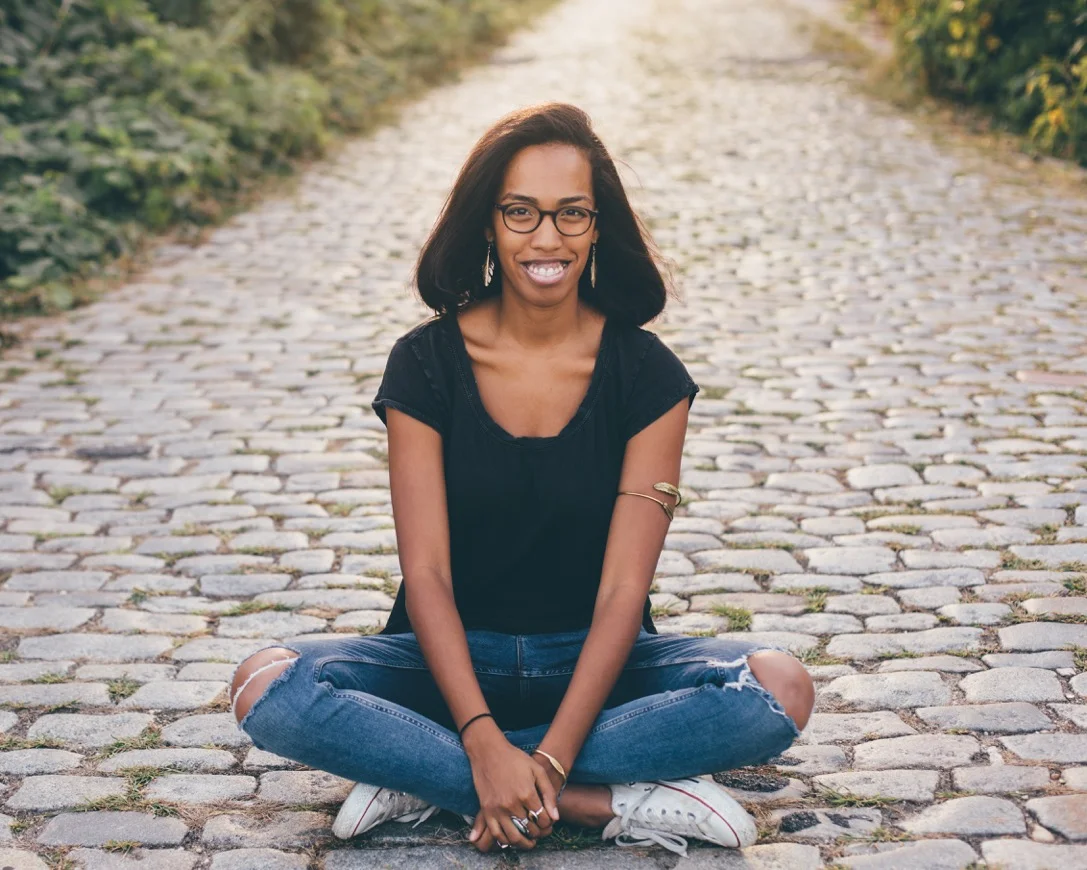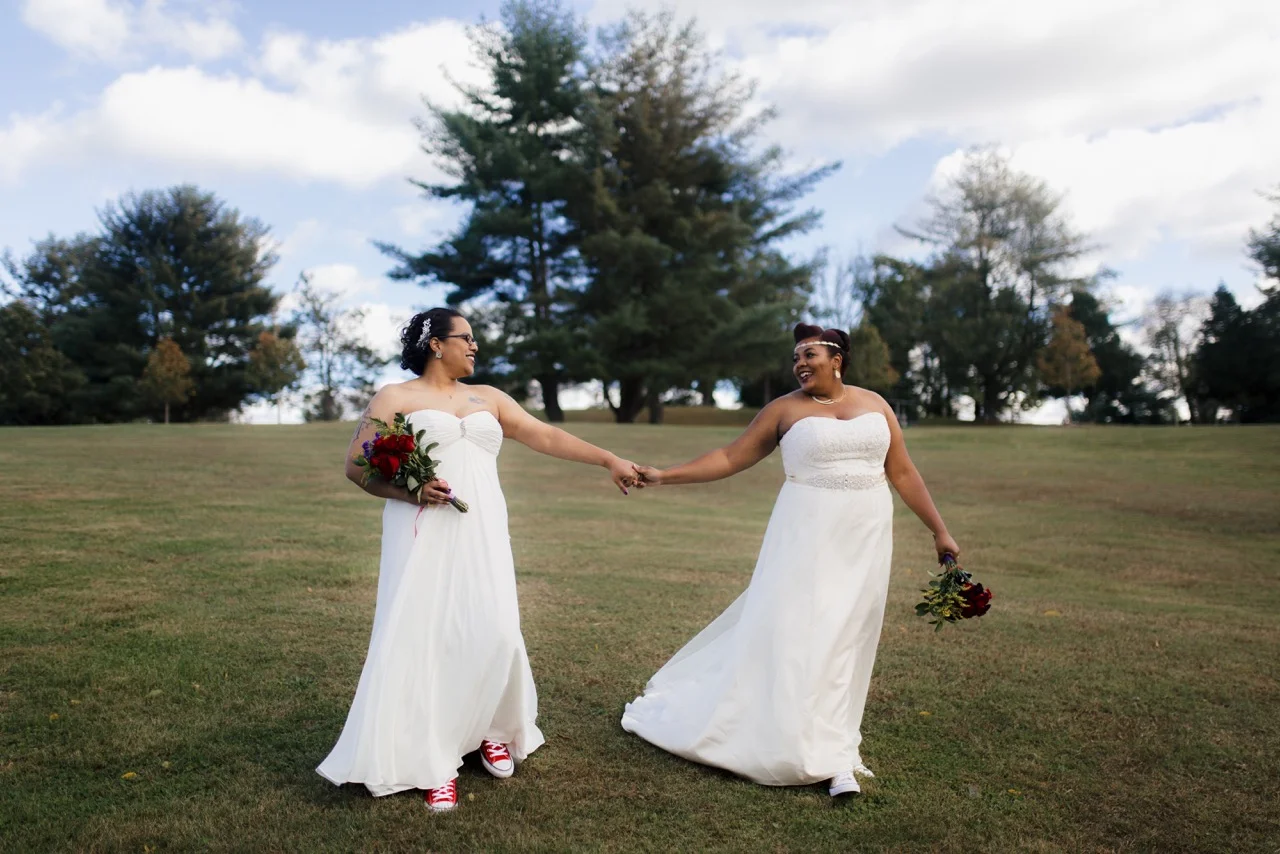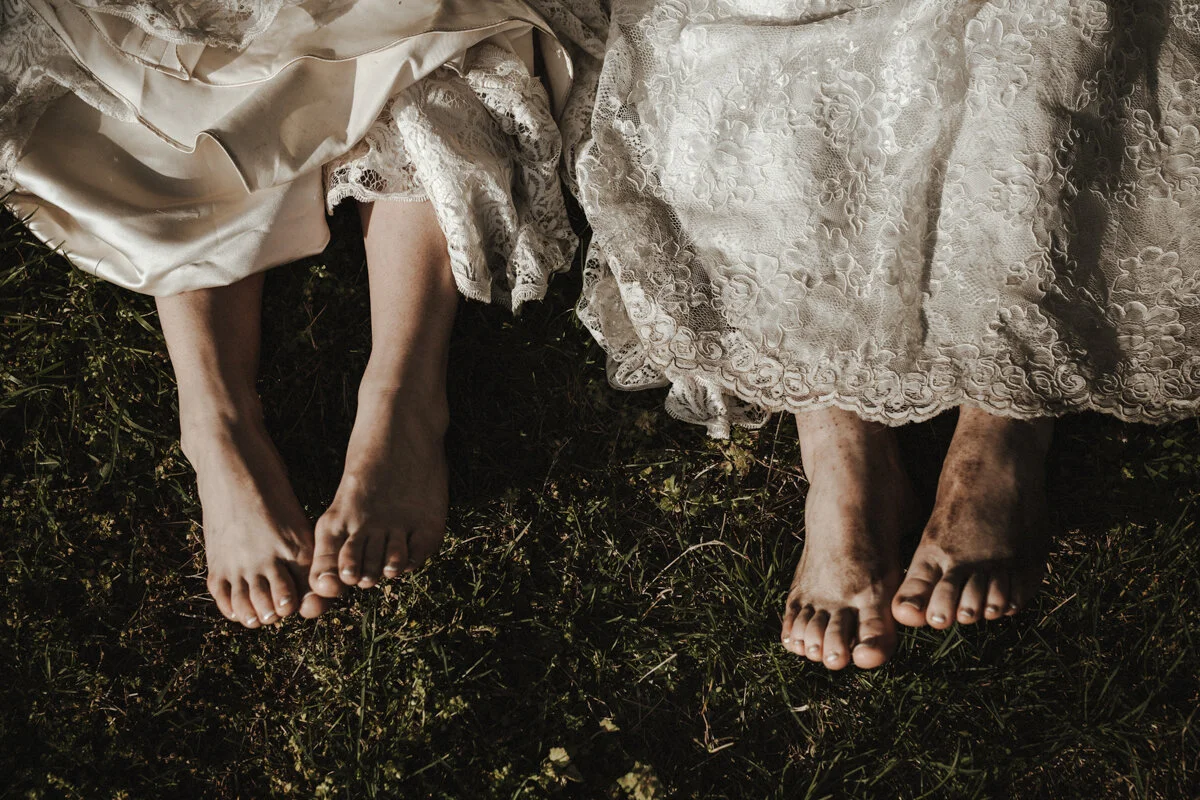Woke Wednesday // Meet Richmond Photographer Nadiya Nacorda of Imani Fine Art Photography
/Our friend Nadiya Nacorda of Imani Fine Art Photography sat down with us to discuss her unique perspective as the granddaughter of a South African Apartheid activist, an artist, and an intersectional womanist who knows that social justice should be personally transformative, rather than trendy.
Liz: Can you tell us a bit about your background? What was growing up like for you?
Nadiya: So I was born in Detroit, Michigan, to really young parents, and I have five younger siblings. My mother is from South Africa, and my father is from the Philippines. My father came to the U.S. when he was 11, and my mom is the only one of her siblings born in the U.S. So my background is a bit unique, especially considering my parents divorced when I was very young: officially when I was four, but they were separated long before that. I don't really have any memories of my parents together, so I don't really know the difference. Growing up was hard in some ways in terms of my family dynamic. My Filipino side and my South African side are very different, to say the least. And in some ways, growing up was very easy. My mom, being a single mother raising me and my other siblings, had a overwhelming amount of challenges, but we never really knew about them. After I was about five, we moved to East Lansing, and I had a very cliche midwestern childhood: playing outside in the trees until dark, walking to school everyday, and knowing all the kids in my neighborhood. Even now they are some of my favorite memories. That changed a bit when we moved back to a suburb of Detroit around my high school years. But that's generally pretty normal; high school is the worst.
All photos by Imani Fine Art Photography
Liz: Ah, yeah. Thank you for sharing those details with us. Can you tell us a bit about high school and your transition into college?
Nadiya: So my high school was located right over the border from Detroit and was an extremely wealthy community, although my family definitely was not. There were very few students of color, despite being so close to a majority black city. There was a lot of racism, classism, and general awfulness that comes with high school. I had a very tight-knit group of friends, and we're like sisters now. I was a total secret nerd and actually played the clarinet for years. During my senior year of high school, we moved to Virginia, and so I ended up going to college in Richmond. My transition was seamless. I was so ready to be out on my own. I'd spent a lot of time reading, writing, and being very introspective my senior year since I was so new and didn't have a lot of friends. So by the time college came around I already felt so grounded and excited for the independence. Getting dropped of at my dorm was one of the best days ever. I'm fiercely independent, so everyone else was crying, and I was just like "peace y'all!"
Liz: Ha, that is awesome. So what did you study in college?
Nadiya: I got my BFA in Photography & Film, and my classes were all pretty dominated by the Fine Arts.
Liz: How did you know you wanted to study art?
Nadiya: In my sophomore year of high school, I had to take an art class. (I'd always been very creatively inclined since I was very little, and my mom always supported that.) We had a drawing assignment that was pretty extensive. I worked on it for a while, and when it finally came time to turn it in, I realized how good it was. We put them up on the wall, and the whole class went to the other side of the room to see what they looked like from afar, and mine was one of the best. So it was then at 15 that I realized I could actually draw. My teacher encouraged me to enter it into a contest, and I ended up winning. After that I was pretty sure art was my thing, especially considering I'd been partial to art my whole life. I even used to try to sell my drawing to my family for 25 cents—my little baby hustle. (laughs)
Liz: Ha, that is awesome. And that tidbit transitions beautifully into my next question: how did you come to start your own business?
Nadiya: So after graduation, I had no idea what I wanted to do in terms of photography. I knew I wanted to work for myself; I just wasn't sure what that looked like. I think it was probably during a conversation with my mom that she suggested I look into wedding photography. I'd opened up to the idea and started doing research and found so many photographers that were taking a fresh perspective on wedding photography. It was after that that I was like, all right, let’s dive in.
Liz: Awesome. And how has the experience of running your own business been for you?
Nadiya: It was really, really hard in the beginning and has gotten progressively easier in recent years, just inherently because time has passed and the business has grown. Like with most things that you pour your heart into, it changes you. I look back at my first year, and it feels like eons ago. Even though I'm only in my third year now, things have moved so quickly, which has been amazing. Running your own business is such hard work—more than I ever could've imagined—because it challenges all of you and all aspects of your life, but the reward is more than worth it.
Liz: So it's Woke Wednesday! Do you consider yourself woke, feminist, or otherwise a social justice advocate?
Nadiya: Oh yes, my grandfather was a strong political activist during Apartheid S.A., which is why my family had to come to this country because he was being persecuted by the government for his activism. He died before I was able to meet him, but I've been hearing his and my grandmother's stories my entire life, and in some ways I feel like being woke and embodying the values of social justice was never a choice for me; it was just how I was raised. He did so much amazing work, and I'm hoping to carry on his legacy with my own work (through my business, but also outside of it). I am an intersectional womanist and prison abolitionist, as well. I'm also an empath, which tends to inform my conviction in so many ways.
Liz: Wow, I didn't know that about your family history of activism. That's amazing. Can you talk a bit about how you incorporate these values and this perspective into your work as a wedding photographer?
If you're still participating in social practices that are damaging or harmful toward marginalized groups in this country, whether it be consciously or subconsciously, then frankly you haven't done the work.
Nadiya: Firstly, I am very specific in the language I use on my website and wherever it is that I'm posting. Am I being inclusive enough? Am I making sure to be aware of the pronouns I'm using or not using, for that matter? Am I participating in elitism in some way? I make sure to always have myself in check and to also be willing to grow and reevaluate myself. I'm also very aware of the communities I'm serving. There have and currently still are so many business out there, wedding or otherwise, that serve white folks and play into the paradigm of white beauty/image. I grew up in a world where none of the little girls I ever saw in any form of media looked like me or anyone that I knew in my life. I don't think on the whole that the white population understands how damaging that truly is. Thus, with my work I want to make the faces of those that have been marginalized and excluded for so long very, very visible. Getting married and having a wedding full of celebration and joy is a thing of privilege. Not all of us have been able to share in those benefits. So in some ways, I think proper representation within the wedding industry has its own special place of importance because of the wedding’s implied significance.
Liz: I love that. Do you have any advice for others starting out in the industry who share your values?
Nadiya: I would say, stick to what you know is important. And to be inclusive and conscious is valuable to the industry, but only to the extent that you do not exploit it. If you find yourself questioning something that feels inappropriate or abusive, then it probably is. Do not "use" an interracial couple in a shoot just to make your portfolio more diverse so you can start seeming more inclusive to the industry. Start first with yourself. Take a step back, and look at the inner circle of people you see every month. Who are they? What do you all talk about? Are you discussing issues related to populations you have no experience with? Do you participate in tokenizing? Overall, if you share these values and want to start out in the industry, double and then triple-check yourself and your own life. Because if you're still participating in social practices that are damaging or harmful toward marginalized groups in this country, whether it be consciously or subconsciously, then frankly you haven't done the work.
Liz: That was a really powerful statement, and it's a concept that you have impressed upon me multiple times. You do not approach "social issues" at a surface level; you are showing us the heart of the matter. Thank you for sharing your wisdom, Nadiya. Is there anything else you would like to say on this subject?
Nadiya: Oh yeah, I think these days with the social and political climate, it's cool to give a shit. But that gives everyone a pass to not really, really...give a shit.


























